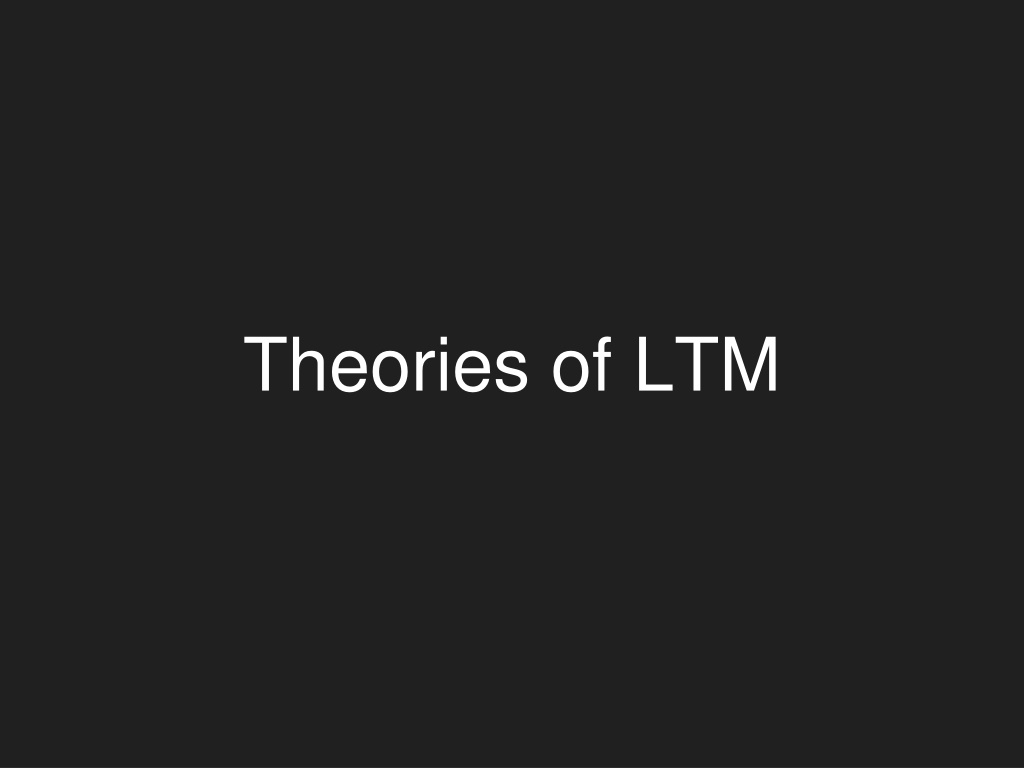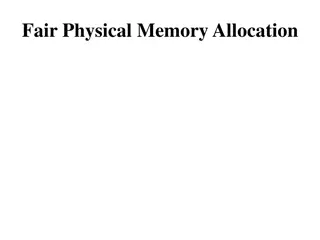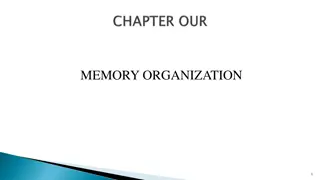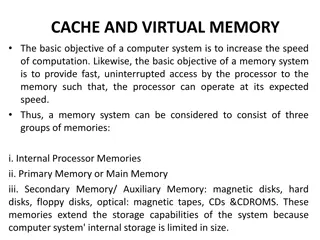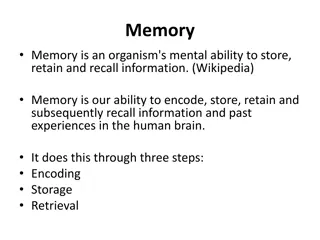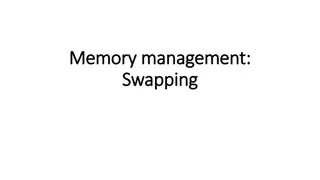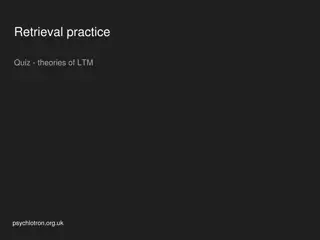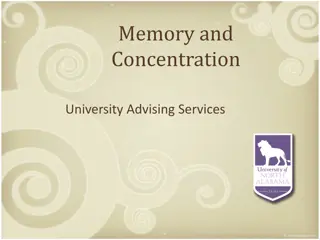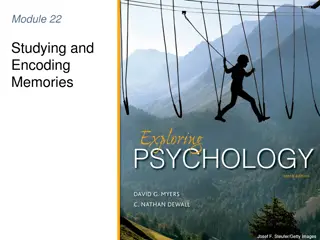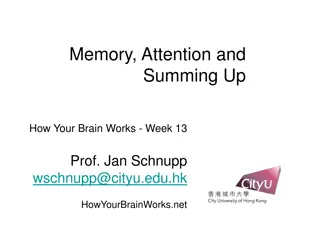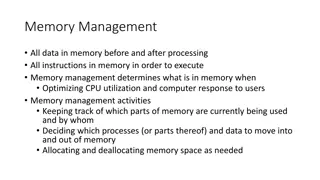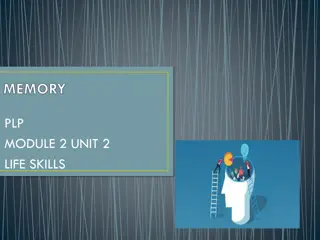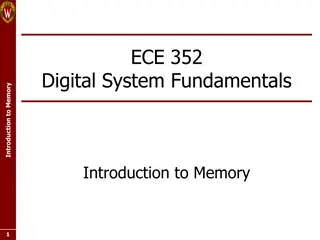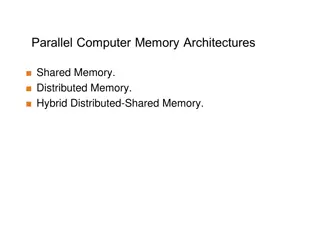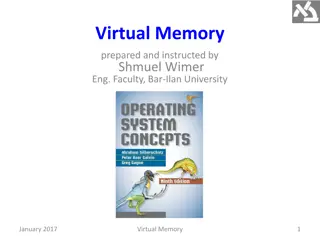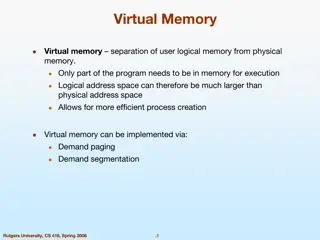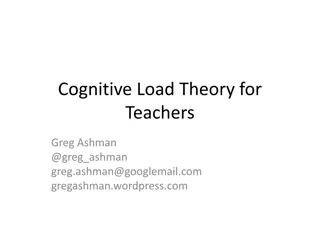Understanding Long-Term Memory Deficits: A Cognitive Perspective
Clive, who suffers from severe long-term memory deficits due to brain damage, exhibits both anterograde and retrograde amnesia. Cognitive psychologists can explain Clive's memory pattern by analyzing different subsystems of long-term memory, such as episodic and semantic memories. Theories like Tulving's qualitatively distinct memory systems shed light on how memories are stored, retrieved, and affected. Comparisons and learning strategies further enhance understanding of memory processes.
Download Presentation

Please find below an Image/Link to download the presentation.
The content on the website is provided AS IS for your information and personal use only. It may not be sold, licensed, or shared on other websites without obtaining consent from the author. Download presentation by click this link. If you encounter any issues during the download, it is possible that the publisher has removed the file from their server.
E N D
Presentation Transcript
Clive has has severe problems with his long-term memory since his brain was damaged by a viral infection. As well as having severe anterograde amnesia (he can t store new LT memories) he also has retrograde amnesia for information from before the damage occurred. He cannot remember much of his time at university or many events from his adult life, although his understanding of the everyday world seems unaffected. He knows who his wife is, but cannot remember much about their marriage. However, he can still play the organ and conduct an orchestra. How might a cognitive psychologist explain the pattern in Clive s LTM deficits?
The multistore model STM LTM Sensory store Assumed by Atkinson & Shiffrin (1968) to be unitary.
Subsystems of LTM Atkinson & Shiffrin (1968) Cohen & Squire (1980) Tulving (1972) Episodic Declarative Semantic LTM Procedural
Tulving (1972) LTM has two qualitatively distinct systems Episodic (experience) versus semantic (facts) Mental diary versus mental encyclopedia Episodic memories are time- and location-linked Episodic memories are holistic Episodic memories are prone to change Retrieval of episodic memories is context-dependent psychlotron.org.uk
Comparisons Comparisons help us deepen understanding. Exam technique: Requires a difference and a similarity State the difference/similarity then back it up with facts Use examples where appropriate psychlotron.org.uk
Learning & revision Make a set of file cards to help you revise this topic for a quiz next lesson. 1. Review the topic and identify the key questions. 2. Formulate a clear and accurate answer, using appropriate technical vocabulary. Use your cards to revise for a quiz at the start of next lesson. psychlotron.org.uk
